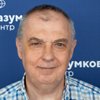Little Judas… One can well understand those who want to reduce lessons of Russian literature at Ukrainian schools, but still, in my opinion, there are works without which it is difficult to understand what is happening in the "mysterious Russian soul" (of the people in general and of some politicians of our north-eastern neighbour).
Among them, I would mention "The Golovlyov Family", a novel by the Russian classic writer Mikhail Saltykov-Shchedrin, in which the harshest image of the Russian reality is created — both at that time and, to a large extent, in the future, centuries away.
The central character of this novel is Porfiry Vladymyrovich Golovlyov, also known as Little Judas: "Porfiry Vladimirovich was known in the family by three names: Little Judas, Bloodsucker, and Sincere Boy." The literary reviewer of the Russkoe Bogatstvo magazine, which was popular at the time, wrote about his image: "In our literature, in the midst of completely Russian cultural types, such as Chichikov, Nozdryov, Sobakevich, Korobochka, Prostakov, Plyushkin, and others, only this Judas was missing."
The author does not tell about Little Judas's appearance, but draws attention to his look, which frightens his mother:
"I can't understand what kind of eyes he has... He looks — well, it's like getting a stranglehold. ...Little Judas's eyes exude a bewitching poison that his voice, like a snake, crawls into the soul and paralyzes the human will. ... For him there is no sorrow, no joy, no hatred, no love. The whole world in his eyes is a grave, like a pretext for endless prate. Little Judas' prate carried some kind of dry, almost detached malice towards all living things. After all, not a single word is true! he's lying! "my dear friend, mother", about my sufferings, about my cross... he doesn't feel any of this! Hypocrisy was such a necessity of his nature that he could not interrupt a comedy once begun. No, if he was a hypocrite, he was a hypocrite of a purely Russian nature, that is, simply a man devoid of any moral standard who knows no other truth than that which appears in the alphabetic prescriptions.
He was devout and willingly devoted several hours to prayer every day. But he prayed not because he loved God and hoped to enter into communion with him through prayer, but because he was afraid of the devil and hoped that God would save him from the evil. He knew many prayers and, in particular, he studied the technique of prayer standing very well. But the prayer did not renovate him, nor it enlightened his feelings, or brought some light into his dull existence.
Porfiry Vladimirovich was incapable not only of attachment but even of simple pity. Little Judas was not the kind of man who could be touched. He did not know a single feeling behind him, not a single weak string."
Not so long ago, "The Insider" Internet publication presented an expert assessment of the mental state of Vladimir Putin, given by the US psychiatrist, Professor James Fallon of the University of California, who specializes in psychopathic disorders. He diagnosed Putin's mental state as "psychopathy and narcissistic personality disorder." He points to a characteristic feature of psychopaths, which is found both in Little Judas Golovlyov and Putin: "Psychopaths lack emotional empathy (that is, that have a low ability to sympathize and empathize with other people). But at the same time, psychopaths are very good at "reading" other people's emotional triggers and desires. They very well feel the "psychological weakness" in other people and find painful features of their psyche in order to use them in their own interests, "playing on the pain points" of someone else's psyche.
The external world in which a psychopath lives also bears psychopathic traits. A psychopath believes that what he is doing is rational, justified, moral and good. The culprit is not him, but other people or groups of people. This is called "externalizing guilt." At the same time, a psychopath endows himself with the features of an honest, truthful, almost ideal person. As Little Judas says about himself: "I have no tricks, brother! I'm all here, in the palm of your hand. I don't like lies, I will tell the truth to others, and will listen to it myself!".
A few days ago, at the Eastern Economic Forum in Vladivostok, responding to the words of the moderator who referred to the statements of the Czech and Hungarian authorities that "the USSR behaved like a colonizer when it sent tanks to Prague or Budapest," Putin said: "We have long recognized that this element of Soviet policy was a mistake and led only to tensions in relations. It is not right to do anything in foreign policy that harms the interests of other peoples." And added: "But that’s exactly the rake, if we’re going to talk about rakes, that leading Western countries, and above all the United States, are stepping on. Russia has never been a colonizer, and our cooperation has always been built on an equal basis or with a desire to help and support. As for the countries that are now trying to compete with us, they pursued a completely different policy. And when people compare what happened in former times in cooperation with Russia, the USSR, as it was then called, and with other countries, of course, everything turns out in favour of Russia. Of course, we must take this into account and keep it in mind today."
If Putin follows the path of Little Judas Golovlev, then he needs to "keep in mind" that the fate of this character in Saltykov-Shchedrin's novel turned out to be rather sad. But, apparently, what distinguishes Putin from Porfiry Vladimirovich is that the latter seemed to have his conscience awakened before his death. Apparently, Putin is immune to this.
Source:
https://razumkov.org.ua/statti/iudushka-Golovlyov-iak-literaturnyi-prototyp-putina




